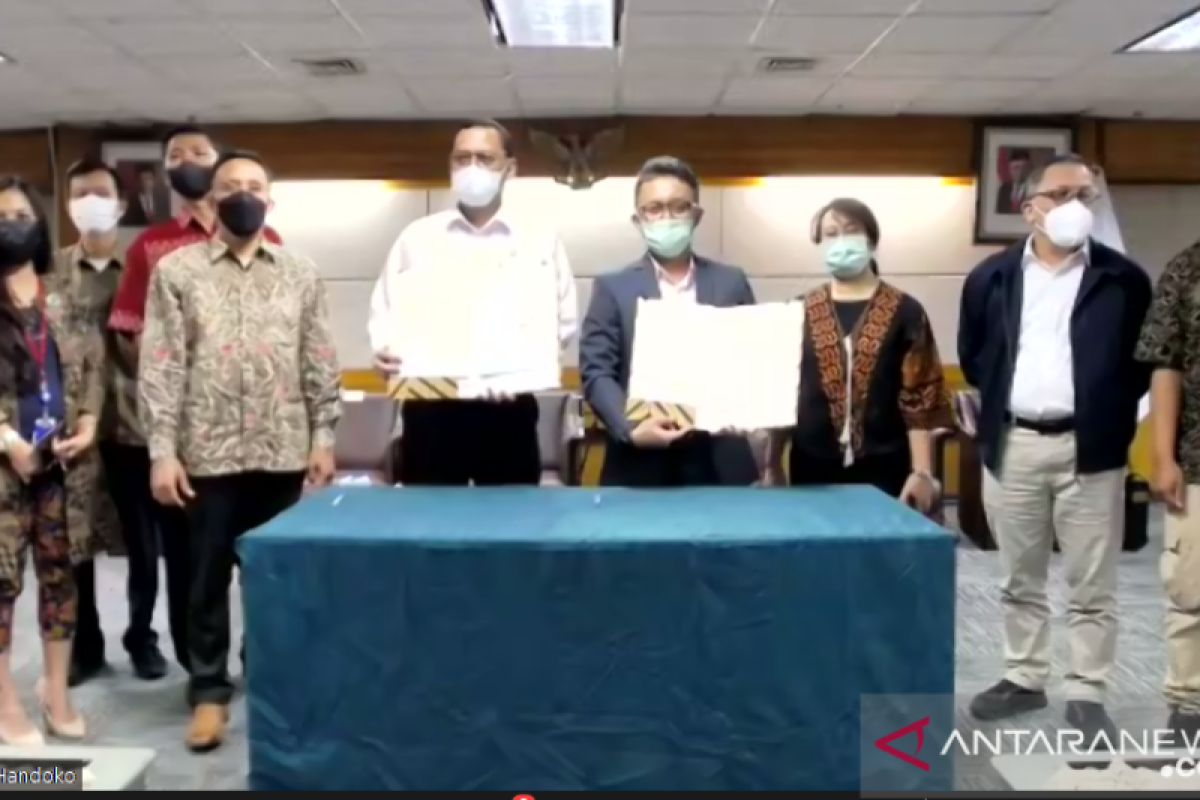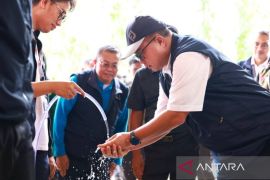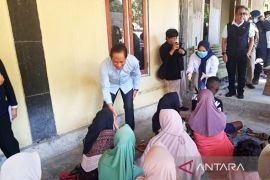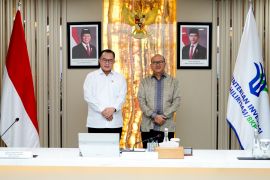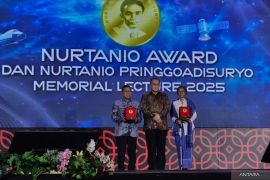At the RT-LAMP product unveiling event here on Friday, BRIN head Laksana Tri Handoko said that the RT-Lamp is one real piece of evidence of how BRIN researchers have worked hard since 2020.
The researchers came from various BRIN centers, such as the Chemical Research Center, Physics Research Center, Biological Research Center, Eijkman Institute for Molecular Biology, and Banten Regional Health Laboratory, he highlighted.
The agreement was signed by BRIN's research and innovation utilization deputy, Mego Pinandito, and the director of PT Biosains Medika Indonesia, Rifan Ahmad, and witnessed by the BRIN head and RT-LAMP research team.
BRIN is open to collaborating as much as possible with industry partners for the development, downstreaming, and commercialization of research and innovation products to answer the people's and market's demands, Handoko said.
The development of RT-LAMP has been a valuable experience for Indonesian researchers, he remarked.
Related news: RT-LAMP detects COVID-19 in less than an hour: BRIN
Through self-innovation, researchers have managed to improve their skills to produce innovations and research products that are on par with scientific standards and in accordance with regulations, he added.
With the RT-LAMP method, the target gene amplification reaction occurs within less than an hour, so it allows faster COVID-19 diagnosis with the same accuracy as RT-PCR, he noted.
The RT-Lamp has received a Health Device Distribution Permit Number (Kemenkes RI AKD 2030322XXXX) from Indonesia's Health Ministry.
The distribution permit for the product, bearing the trademark Qi-LAMP-O, will remain valid until January 2027.
Director of PT Biosains Medika Indonesia, Rifan Ahmad, said that the wait for RT-LAMP has been relatively long because the market demand has grown quickly ever since the COVID-19 pandemic struck Indonesia in 2020.
"We are very optimistic that Indonesia could be independent, especially in the future where the method would no longer be just nasopharynx and oropharynx swab, but could also be developed through saliva," he added.
He said he expects the presence of RT-LAMP to fulfill Indonesia's market demand not just for COVID-19. In the future, RT-LAMP could be developed to detect other pathogenic microorganisms such as malaria and tuberculosis, he added. (
Related news: BRIN builds research facility for traditional food processing
Related news: BRIN, Kadin explore collaboration for strengthening industry
Translator: Martha S, Fadhli Ruhman
Editor: Suharto
Copyright © ANTARA 2022
